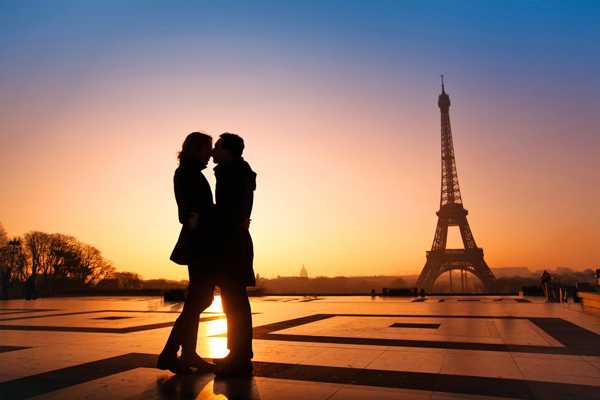The Grand Est region encompasses the cultural and historical regions of Alsace, Champagne-Ardenne, and Lorraine. From picturesque Medieval towns and crystal blue lakes to wildlife parks to traditional arts and crafts, you’ll be in for a treat for all senses.
Explore the magnificent Chateau du Haut-Koenigsbourg with its turrets and grand walls and imagine the life there in the tumultuous 12th century. Or tour the champagne houses of Epernay or the Alsace Wine Route, sample local products, and discover new favourites.
What are the best things to do in Grand Est?
- 1
Colmar old town
The "Little Venice" of Alsace

- Budget
- History
- Photo
Treat yourself to a visit of the old town of Colmar and marvel at the wealth of varied heritage from the Middle Ages to the present day. On Rue des Têtes, admire the Maison des Têtes, which owes its name to the hundred or so grimacing masks that decorate its façade, then head toward the Rue des Boulangers, which has many beautiful half-timbered houses.
In Place des Dominicains, visit the church of the same name, which houses the famous "Vierge au buisson de roses" by the Alsatian painter and engraver Martin Schongauer. Continue to the Collégiale Saint-Martin church, another example of pure Gothic art. Enjoy a leisurely stroll in the direction of Place Jeanne d'Arc and the Grand Rue.
Map - 2
The pottery trade in Soufflenheim
Potters' workshops and passionate craftspeople

- History
- Shoppers
There are two pottery villages, Betschdorf and Soufflenheim, not far from Haguenau, in the north of Alsace. Why are they located there exactly? You have to go back to the 12th century to find out, to the time of Frederick 1st of Hohenstaufen, the Holy Roman Emperor. It was he who gave the potters the right to extract clay from the subsoil of the Haguenau forest free of charge and forever.
It's worth knowing that Soufflenheim potteries are terracotta potteries, which can therefore be used for cooking food. For example, think of baeckeoffe terrines or kougelhopf cake moulds, and don't forget to bring home one of these traditional examples of Alsatian pottery.
Map - 3
The Château du Haut-Koenigsbourg
Nine centuries of a rich and tumultuous history

- History
- Photo
The medieval castle of Haut-Koenigsbourg, located in Orschwiller, in the Bas-Rhin department, is right in the heart of the historical and cultural region of Alsace. This 270-metre-long bastion, perched at a height of almost 800 metres, impresses not only by its silhouette but also by its rich history.
It was built in the 12th century by Frederick I of Swabia, then became the property of robber barons, before being reclaimed by the Habsburgs in the 15th century. Abandoned for several centuries due to looting and fires, it was eventually gifted in 1899 to Emperor Wilhelm II, a great lover of castles, who redesigned it before the First World War.
Location: D159, 67600 Orschwiller, France
Open: Hours vary by season
Phone: +33 (0)3 69 33 25 00
Map - 4
The historic centre of Troyes
A beautiful city of art and history

- Couples
- Families
- History
The historic center of Troyes, the historic capital of Champagne, is truly worth a visit for its pretty half-timbered houses. It boasts beautiful mansions, but also a stunning cathedral dedicated to Saint Peter and Saint Paul (cathédrale Saint-Pierre-et-Saint-Pau), with its stained-glass windows of a rare quality.
Among the charming lanes, don't miss the Baker's House (la maison du Boulanger) and the Goldsmith's turret (la tourelle de l’Orfèvre), small architectural jewels that have been remarkably restored. Here's a fun fact: the historic center of Troyes is shaped like a champagne cork.
Map - 5
Amnéville Zoo
Perfect for a relaxing day with your family

- Families
- Food
- Photo
The Amnéville zoological park, located between Metz and the border with Luxembourg, has around 2,000 animals of some 360 species, originating from the five continents and over a surface area of 18 hectares.
Among the animals you will be lucky enough to see are the Siberian tiger, white rhino, snow leopard, red panda and brown bear. The Amnéville zoological park is also one of the rare French zoos to house gorillas and orangutans. When the tummies start to rumble, sit down for a quick bite at one of the many cafes and restaurants in the area.
Location: 1 Rue du Tigre, 57360 Amnéville, France
Open: Hours vary by season
Map - 6
The Champagne houses of Epernay
Épernay's "Champs-Elysées" are yours to discover

- Couples
- Luxury
- Shoppers
Explore the champagne houses of Epernay and the majestic 1-km long Avenue de Champagne to discover some of the most prestigious champagne houses in the world. You’ll find the renowned champagne producers Moët & Chandon, Perrier-Jouët, and Mercier and their delectable products.
Just think, there are thousands of carefully guarded bottles in their basements, lining more than 110 km of cellars. Ask at the Tourist Office in Epernay for information on which cellars to visit. In this UNESCO World Heritage Site, you’re guaranteed to pamper your palate with some of the most exquisite champagnes on this planet.
Map - 7
The Alsace Wine Route
A mythical route of rustic charm

- Adventure
- Couples
- Shoppers
The Alsace Wine Route is the oldest in France at 170 km long and runs through the famous wine-growing region. The route boasts beautiful landscapes dotted with quaint villages, each more charming and picturesque than the next.
Travel this exceptional route by car or bicycle and meet its passionate winemakers. No less than 70 wine-producing villages and more than 1,000 producers open the doors to their cellars every day, eager to share their passion for wine with visitors. Be sure to get a bottle or 2 to remember your trip by.
Map - 8
The Lac de Gérardmer
The largest natural lake in the Vosges is yours to discover!

- Couples
- Families
- Photo
The Lac de Gérardmer is a stunning natural lake that's a must for outdoor recreation. Located at an altitude of 660 metres, with a surface area of 155 hectares and an average depth of 17 metres, Gérardmer lake is a popular site for holidaymakers in search of nature and greenery. Six kilometres of marked trails invite you walk along the shores of the lake, whether on foot, on scooter or by bike.
If you're looking for water sports, you won't be disappointed, as you can enjoy sailing, rowing, canoeing and pedal boats. If you are visiting with your family, remember that the Union Nautique beach is a supervised swimming area from June to September.
Location: 88400 Gérardmer, France
Map - 9
The old town of Metz
From one discovery to another in a treasure of the north-east

- Food
- History
- Shoppers
The old town of Metz is the perfect place for sightseeing and strolling in the afternoon. Just imagine, the old town of Metz alone can be a place for a several kilometre walk! So put on your walking boots and get ready to discover its many sights, including the Gothic cathedral, the Porte des Allemands, the Museum of La Cour d'Or and the Esplanade Garden.
A stone's throw from this park, you can have fun looking for Paul Verlaine's birthplace. Hint - it's opposite the law courts, and a tympanum, or carved lintel, in the Louis XV style sits above the door. Finally, don't miss the shops, wine bars and brasseries that line the pretty medieval streets of this old town!
Map - 10
Joan of Arc's birthplace
Where the "Maid of Orleans" saw her first visions

- History
- Photo
Joan of Arc's birthplace is a must-visit attraction that reveals the early life of the famous figure. Located in Domrémy-la-Pucelle in the Vosges, in Lorraine, her birthplace is a place of meditation in memory of this young girl who was unlike any other, and whose life met a tragic end. It was in the d'Arc family home that Joan was born around 1412. She spent her childhood there, heard the famous "voices" and contemplated her first apparitions.
The house has been classified as a historical monument since the 19th century and has been preserved, embellished and decorated with inscriptions and sculptures over the years.
Location: 2 Rue de la Basilique, 88630 Domrémy-la-Pucelle, France
Open: February–March, October–mid-December: Wednesday–Monday from 10 am to 1 pm and from 2 pm to 5 pm (closed on Tuesdays). April–June, September: Wednesday–Mondays from 9.30 am to 1 pm and from 2 pm to 6 pm (closed on Tuesdays). July–August: daily from 10 am to 6.30 pm. Closed mid-December–January.
Phone: +33 (0)3 29 06 95 86
Map








